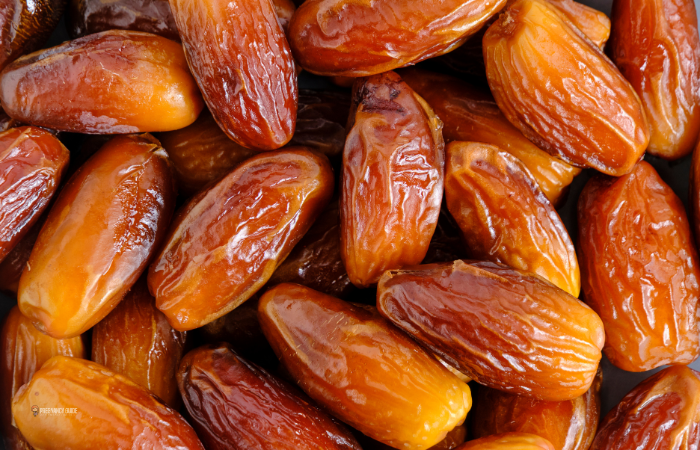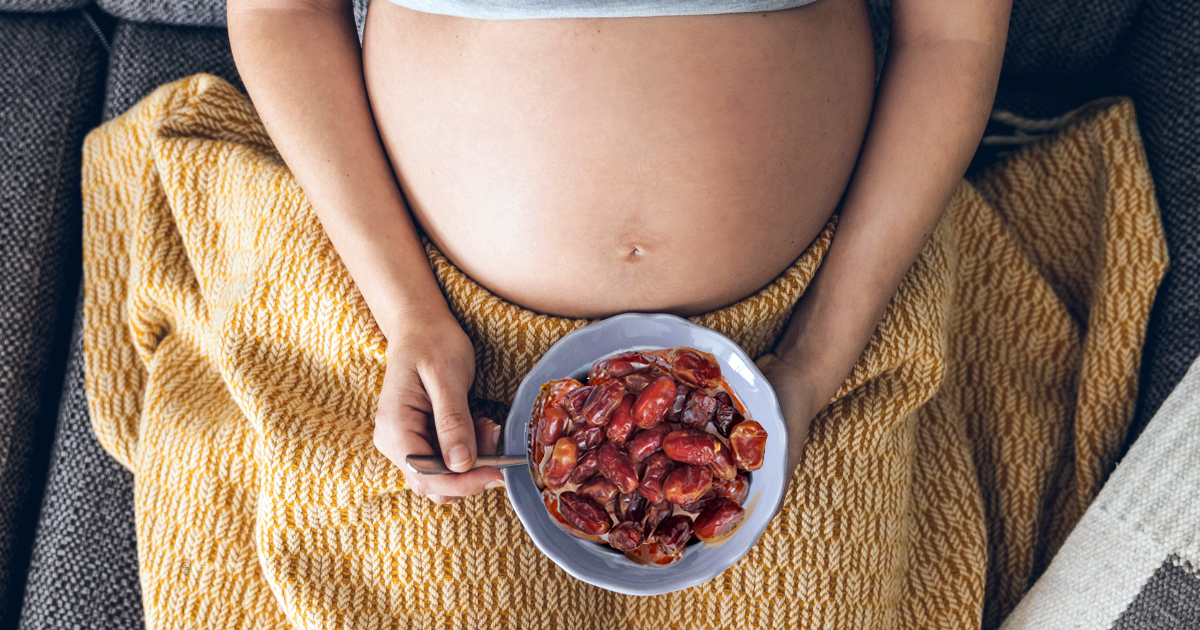The Benefits of Eating Six Dates a Day Starting from Week 36 of Pregnancy
As pregnancy advances into its final trimester, the anticipation of childbirth brings a mix of excitement and preparation. Expectant mothers often seek natural ways to support a smooth and efficient labor. One simple, yet effective dietary adjustment is the inclusion of dates in the daily regimen. Specifically, consuming six dates a day starting from the 36th week of pregnancy has been shown to offer several benefits that may aid in the labor process. This article explores the reasons why this small dietary change can make a significant impact.
Nutritional Richness of Dates

Dates, the fruit of the date palm tree (Phoenix dactylifera), are highly nutritious. They are rich in natural sugars such as glucose, fructose, and sucrose, which provide a quick and sustainable source of energy. This is particularly beneficial in the later stages of pregnancy when the body’s energy demands are higher.
Beyond their sugar content, dates are packed with dietary fiber, which promotes healthy digestion and helps prevent constipation, a common discomfort during pregnancy. Dates also contain essential vitamins and minerals, including:
- Potassium: Helps regulate blood pressure and maintain fluid balance.
- Magnesium: Supports muscle function and relaxation.
- Iron: Essential for preventing anemia and ensuring adequate oxygen supply to both mother and baby.
- Vitamin B6: Important for brain development and function.
Scientific Backing for Dates in Late Pregnancy
Recent scientific research supports the consumption of dates during late pregnancy. A study published in the Journal of Obstetrics and Gynaecology found that women who consumed six dates per day for four weeks before their due date experienced more favorable labor outcomes. These women had higher rates of spontaneous labor, greater cervical dilation upon hospital admission, and shorter first stages of labor compared to those who did not eat dates.
Another study, highlighted in the Journal of Midwifery & Reproductive Health, echoed these findings, showing that date consumption was linked to a reduced need for medical interventions such as labor induction and augmentation. These studies suggest that dates can play a significant role in preparing the body for labor.
Benefits of Eating Six Dates Daily from Week 36
- Promotes Cervical Ripening
Cervical ripening is a critical process that prepares the cervix for labor by softening and thinning it. Dates contain natural compounds that mimic the effects of oxytocin, a hormone that facilitates uterine contractions and cervical ripening. By promoting this process, dates can help ensure a smoother and more efficient labor.
- Reduces the Need for Medical Intervention
The studies indicate that women who consume dates are less likely to require labor induction or augmentation. This can lead to a more natural birthing experience and reduce the risks associated with medical interventions. Avoiding these interventions can also enhance recovery time post-delivery.
- Provides Sustained Energy
Labor is a physically demanding process that requires substantial energy. The natural sugars in dates offer a quick and steady energy supply, which can be particularly beneficial during the strenuous phases of labor. Additionally, the fiber in dates helps stabilize blood sugar levels, preventing the energy crashes that can occur with other high-sugar foods.
- Supports Digestive Health
Constipation is a frequent complaint during pregnancy, often exacerbated by hormonal changes and the physical pressure of the growing uterus on the intestines. The fiber content in dates aids in maintaining healthy digestion and regular bowel movements, alleviating this common discomfort.
- Boosts Nutrient Intake
The rich nutrient profile of dates, including potassium, magnesium, iron, and vitamin B6, supports overall maternal health. These nutrients are essential for various bodily functions, such as maintaining electrolyte balance, muscle function, blood production, and brain health. Ensuring adequate intake of these nutrients can help keep both mother and baby healthy during the final stages of pregnancy.
Practical Ways to Incorporate Dates into Your Diet
Incorporating six dates into your daily diet can be simple and enjoyable. Here are a few practical suggestions:
- Snacking: Eat dates on their own as a convenient and portable snack.
- Smoothies: Blend dates into smoothies for a natural sweetener and nutritional boost.
- Baking: Add dates to muffins, cookies, or energy bars for a healthy treat.
- Salads: Chop dates and sprinkle them over salads for added sweetness and texture.
- Stuffed Dates: Fill dates with nuts or soft cheese for a nutrient-dense snack.
Conclusion
Eating dates later in pregnancy can offer numerous benefits that support a smoother and more efficient labor. From promoting cervical ripening and reducing the need for medical interventions to providing sustained energy and supporting digestive health, dates are a natural and nutritious choice for expectant mothers. As always, it is advisable to consult with your healthcare provider before making any significant changes to your diet during pregnancy. With their approval, incorporating dates into your daily routine can be a delicious and effective way to enhance your prenatal nutrition and prepare for a healthy childbirth.

